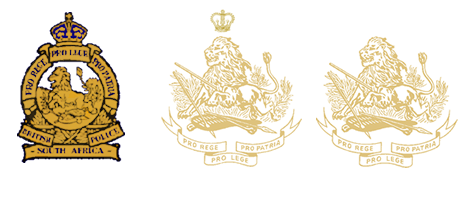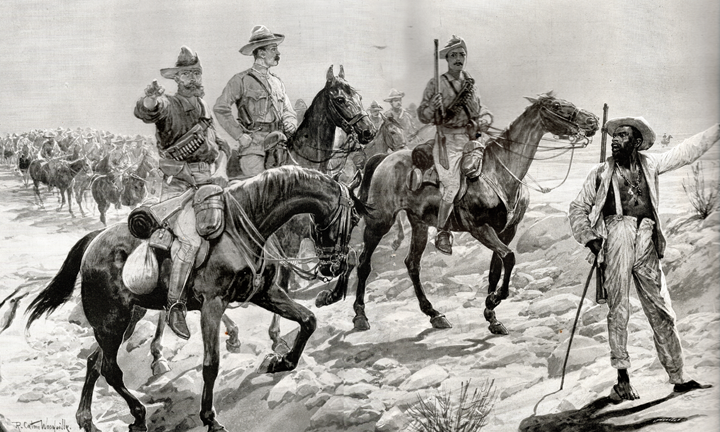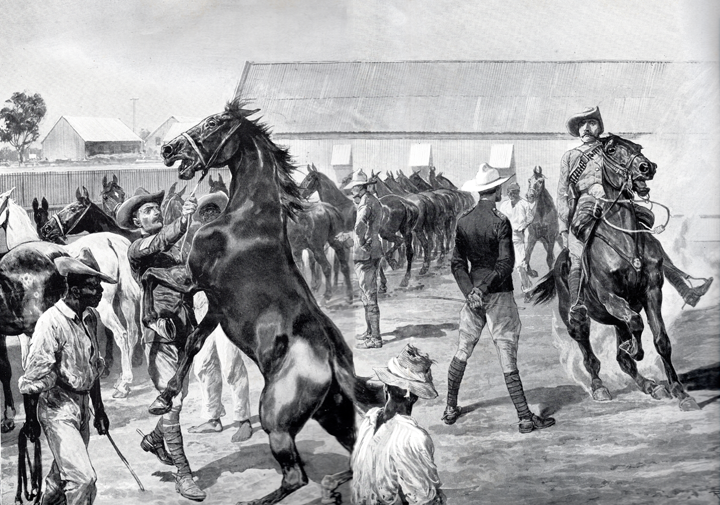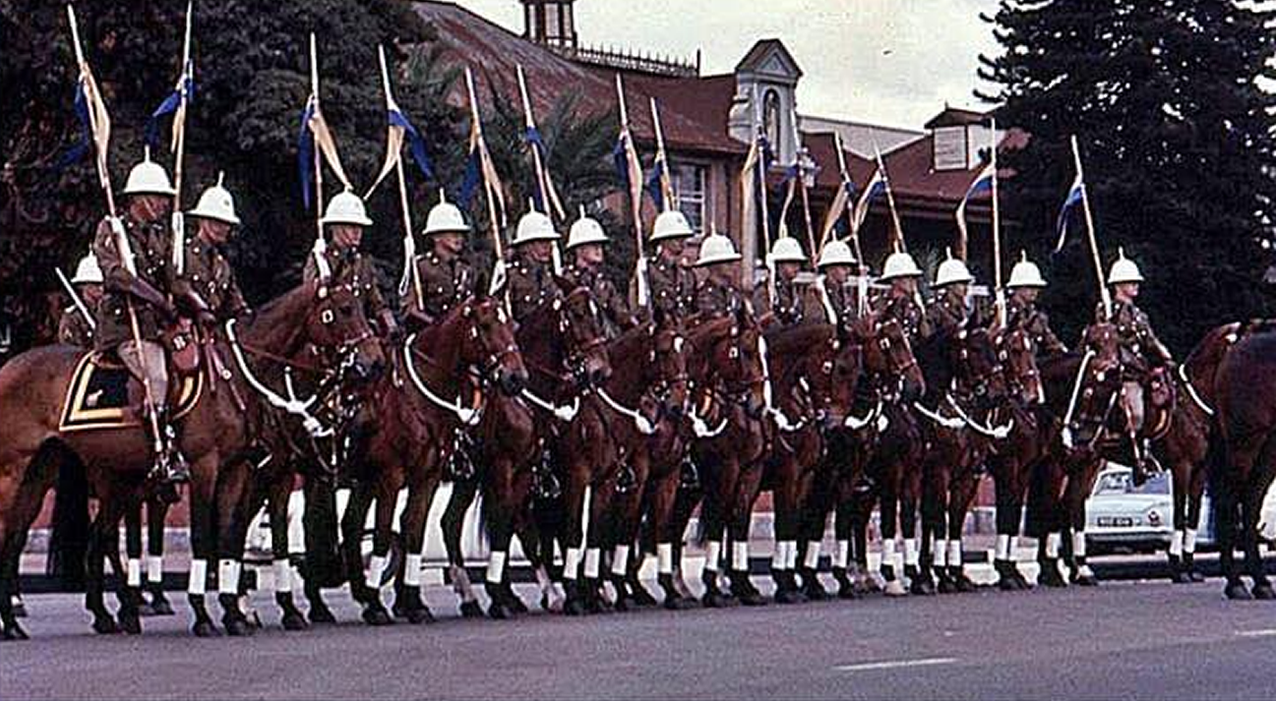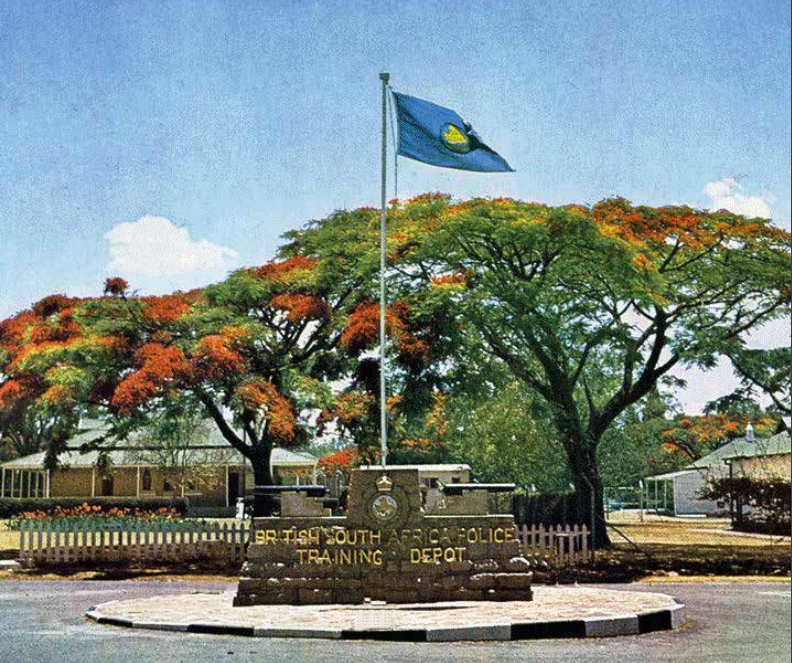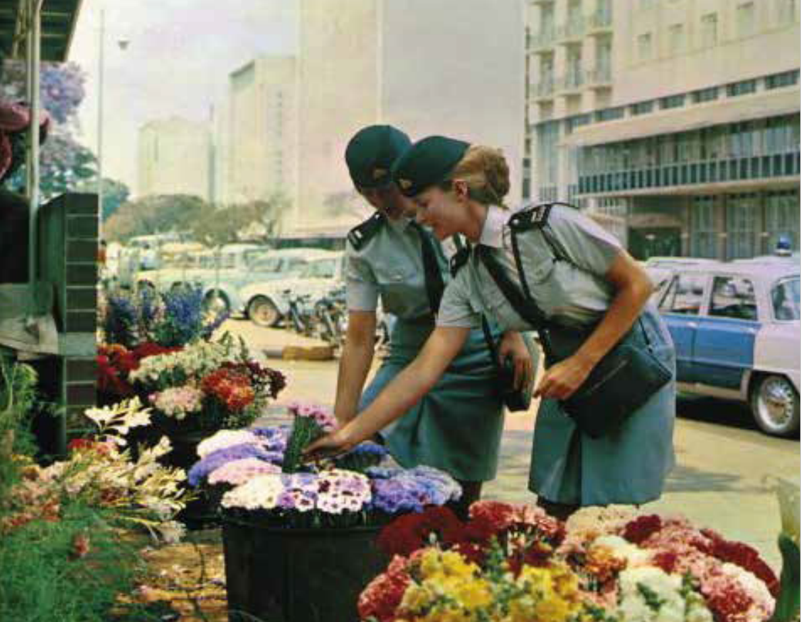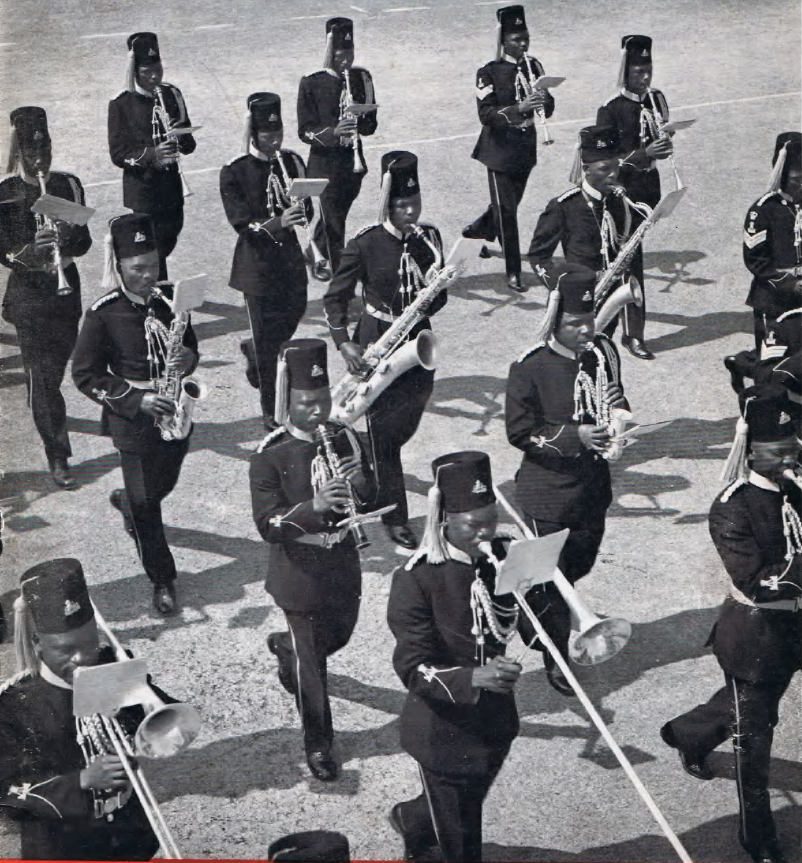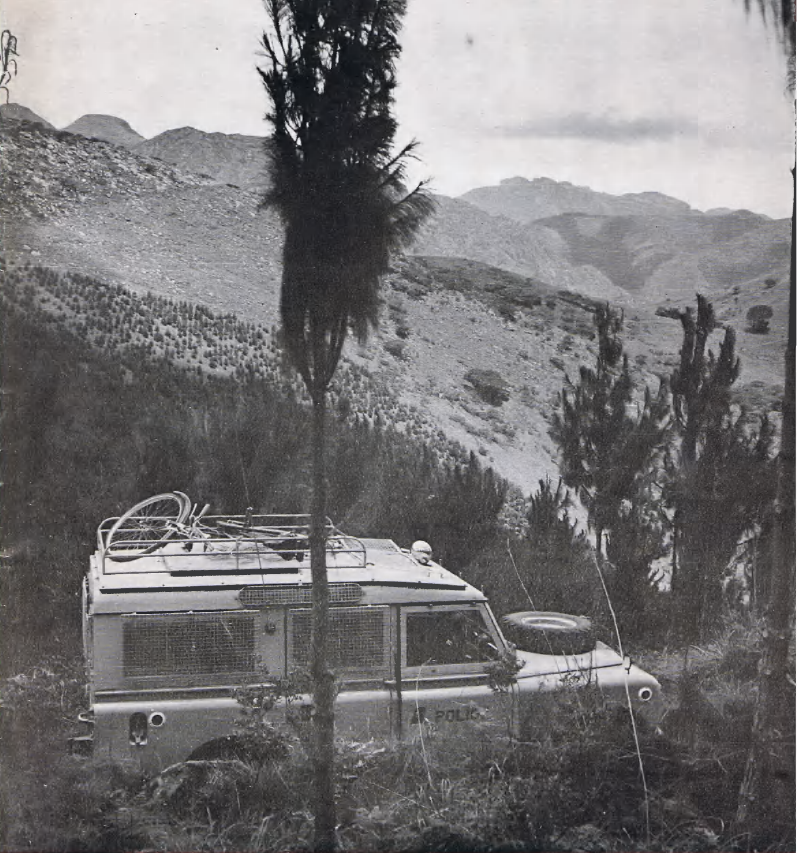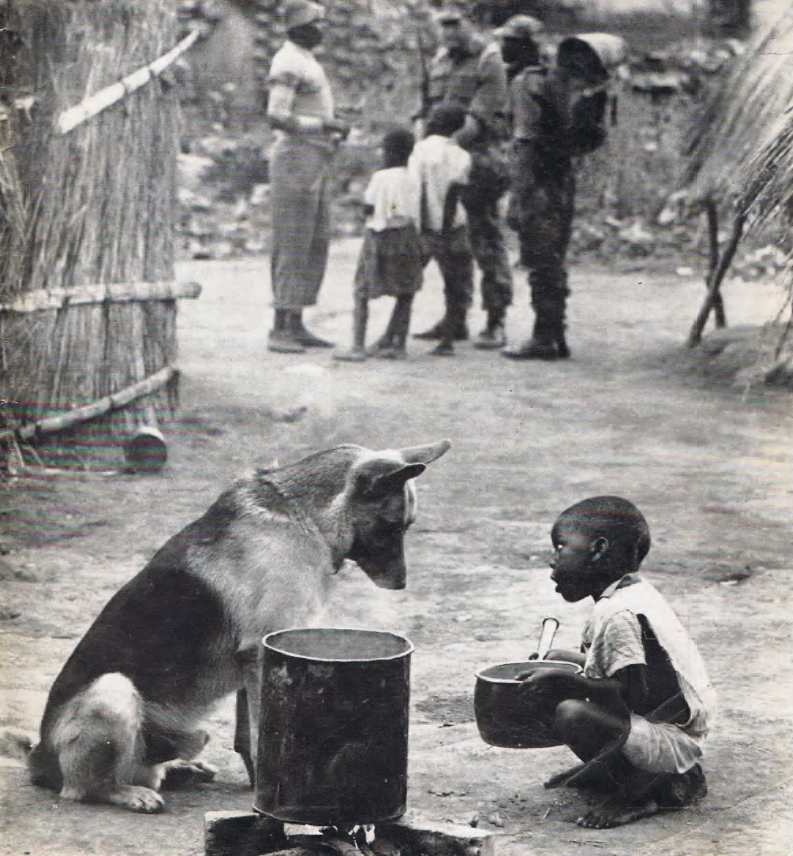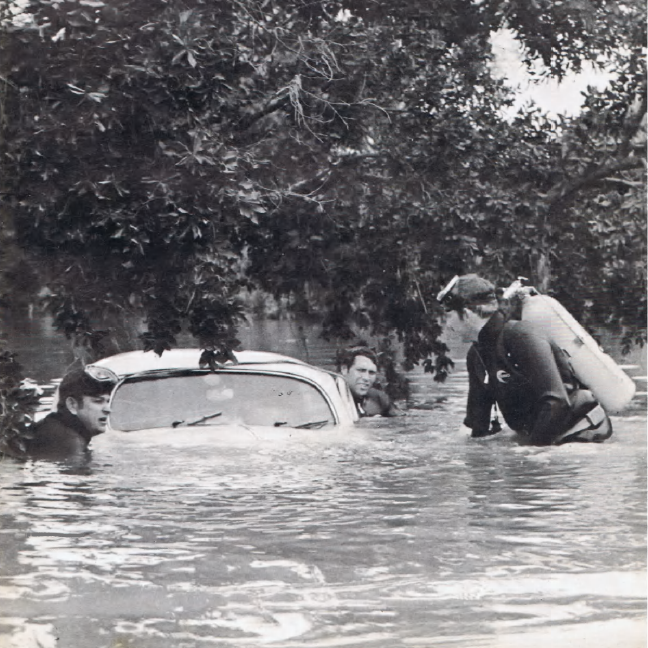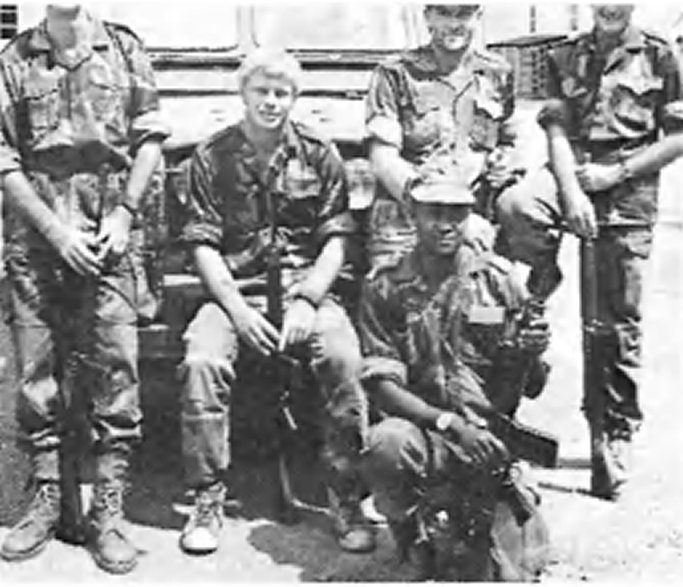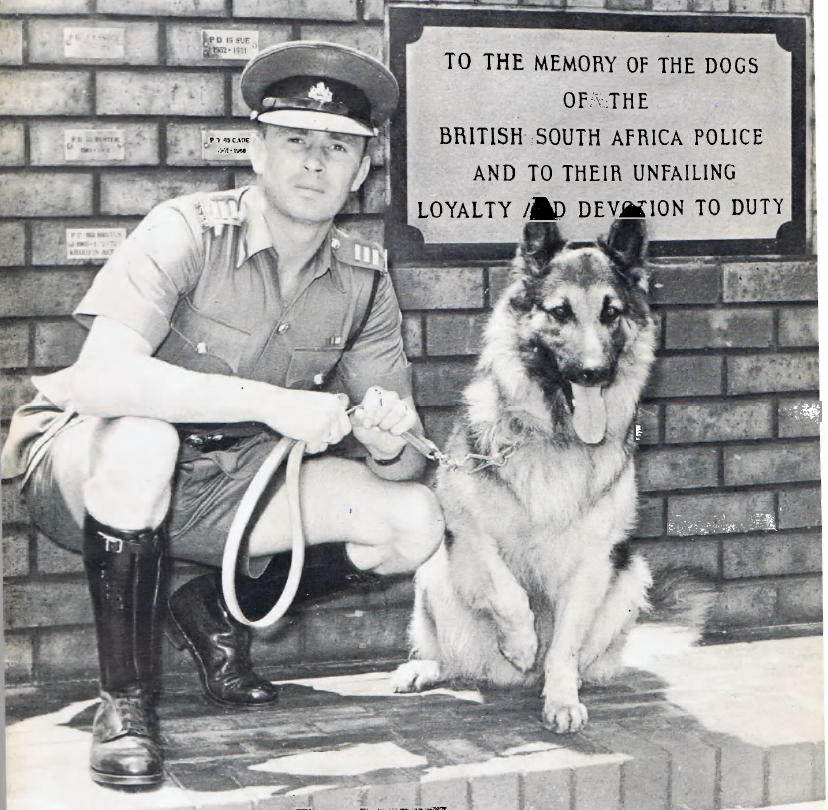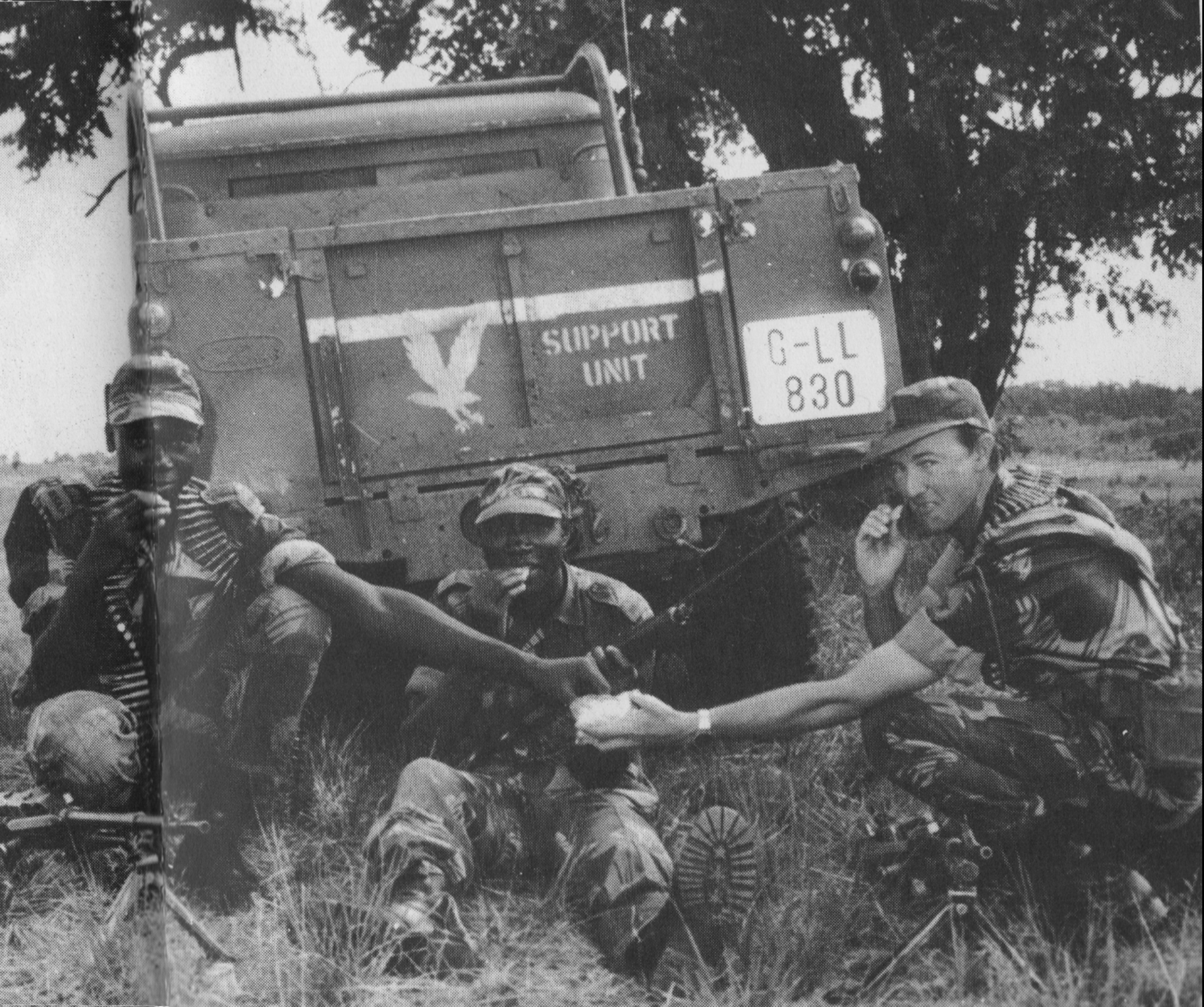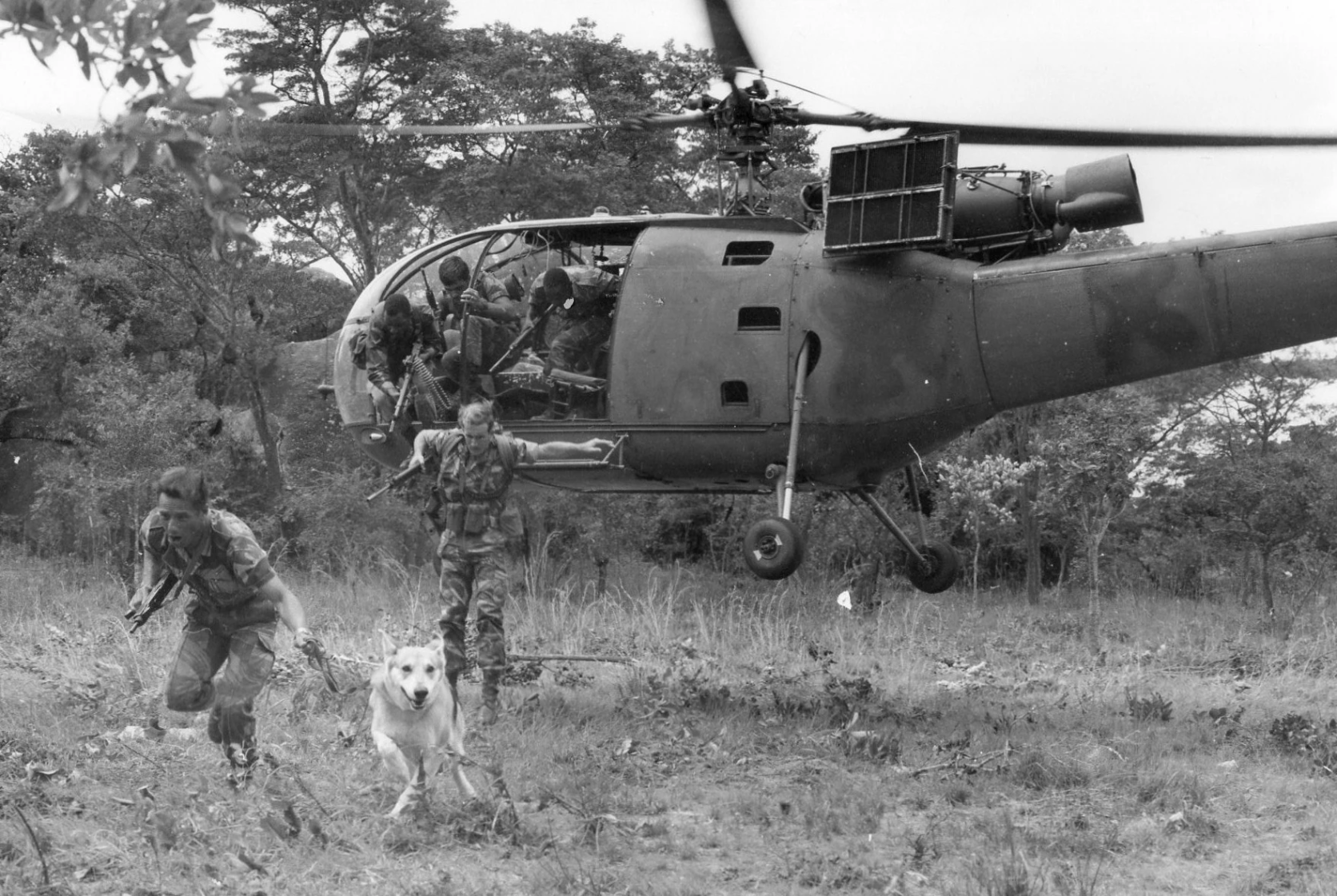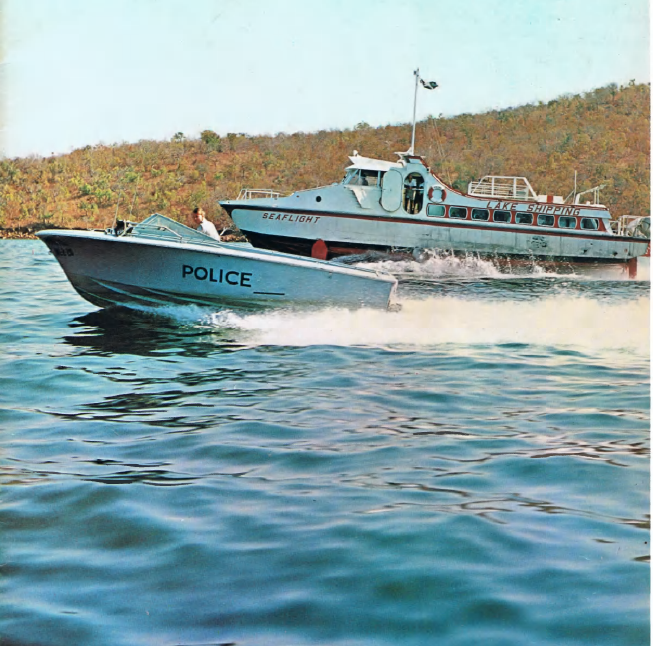This site is in memory of the British South Africa Police, its predecessors, its history, and former members who served from 1889 to 1980 and who served with distinction and honour in a Force with a great and proud tradition.
The site is divided into various sections, which may be accessed through the menu above and provides a conduit for all former members of the British South Africa Police Regimental Association of the United Kingdom to remain connected.
In 1889 Cecil Rhodes negotiated a Royal Charter to occupy and explore the territory to the North of the present Republic of South Africa. The British South Africa Company Police was formed the same year and accompanied the first pioneer column under the command of Lieutenant Colonel SG Pennefather, in its northern march from Mafeking to Mashonaland.
On 13th September 1890, the Union Jack was raised at Fort Salisbury and thus was established the colony that was to become Southern Rhodesia.
Over the years from 1890 the unique character of the BSA Police evolved and grew to influence and stabilise the rule of law over Rhodesia. Its members doubled as surveyors, road builders, telegraph linesmen, veterinary inspectors and were often the founders of the many settlements that were to become thriving agricultural and mining districts.
In World War II the Force played a conspicuous part. Members served in East Africa, the Middle East, Eastern Mediterranean and many other theatres. Members of the Force were responsible for creating new police forces in areas formerly occupied by the enemy,
After that war, and as the population of Southern Rhodesia rapidly expanded, the Force became more specialised as Ballistics, Dogs, Forensic, Radio and Traffic expertise welded the Force into a highly successful and envied civil entity. The Criminal Investigation Department, in particular, was highly regarded throughout the Western hemisphere.
The singular background of the BSA Police enabled it to claim the privilege of ‘standing to the right of the line’ when parading with other forces of the Crown and as a respected, efficient and effective force it was, on several occasions, called to the assistance of neighbouring territories to quell civil unrest.
In 1954, Her Majesty Queen Elizabeth the Queen Mother consented to become the Honorary Commissioner of the British South Africa Police.
In the years from 1970, the BSA Police , together with other Rhodesian military units fought relentlessly in combating the infiltration of Communist trained terrorists and it was during those succeeding ten years that regular and reservist members served with honour, many giving their lives for their country.
